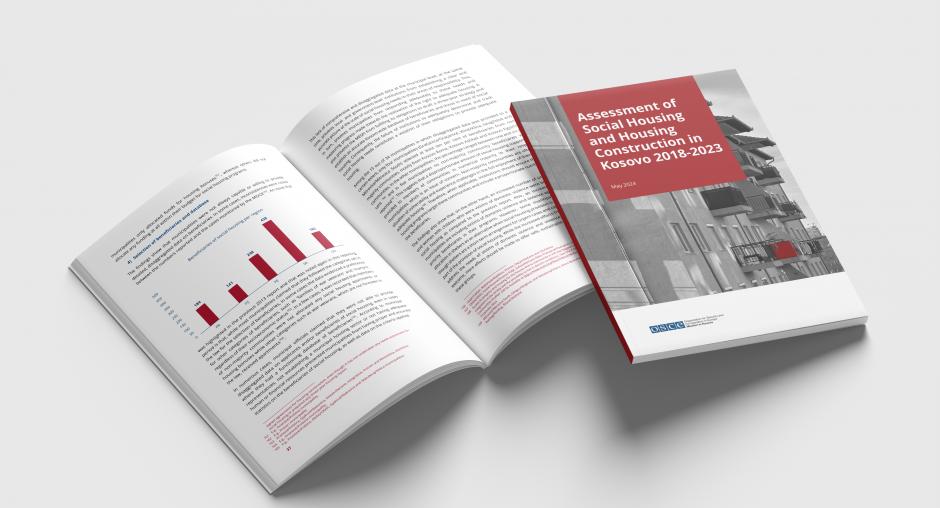Kosovo institutions to provide equal access to social housing to all vulnerable communities, recommends OSCE Mission report

PRISHTINË/PRIŠTINA, 16 May 2024 – The OSCE Mission launched today its latest thematic report “Assessment of Social Housing and Housing Construction in Kosovo 2018 – 2023”, which has reviewed the social housing situation in 34 municipalities in Kosovo in the past six years.
The report concludes that the municipalities have taken important steps to prepare and implement social housing programs and that the beneficiaries have generally been selected in accordance with the parameters of the law.
However, the report notes that municipalities have not always fulfilled their obligations in terms of social housing needs assessment, allocated human and financial resources needed, prepared and approved social housing programs in a timely manner, or requested funding from the central level to monitor and implement these programs.
Also, the report finds that there has been a general lack of transparency about the background of applicants/beneficiaries and an absence of disaggregated data in relation to gender or non-majority communities, which is essential for identifying vulnerable or disadvantaged groups in need of housing. Other disaggregated data, such as persons with disabilities, displaced persons or victims of domestic violence or violence against women, have generally also not been included.
Findings in the report further indicate that third party actors played a major role in the housing construction in Kosovo during 2018-2023. Based on the data gathered, municipalities have had a growing tendency to turn to third party actors, mainly in the form of NGOs, to construct private houses for beneficiaries instead of constructing social housing as foreseen in the Kosovo Law on Social Housing.
“While the support for vulnerable families through private housing construction is welcome and, in some cases necessary, it raises concerns as to whether this is the most appropriate way to address the issue of housing such that equal treatment is guaranteed for all communities,” said Bilbil Kastrati, National Legal Officer at the OSCE Mission in Kosovo. “Therefore, our report recommends that institutions should be accountable for and transparent about the funding received by non-institutional actors, and that the selection criteria for the beneficiaries adhere to the applicable legislation,” Kastrati added.
The report concludes with tailored recommendations for key institutions in this area in Kosovo: the Ministry of Environment, Spatial Planning and Infrastructure and municipalities, with the aim to strengthen the social housing system to provide equal housing opportunities for all vulnerable communities in Kosovo.
The full report is available here: https://www.osce.org/mission-in-kosovo/568462
